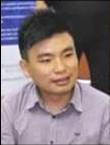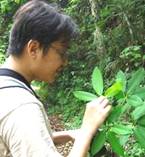Jeta Cove
Dharma applied here & now
Series #2
How Should Buddhists Vote?
On 11 September 2015, millions of Singaporeans will head to the polls for the 11th General Election since independence in 1965. Many of us have not decided who to vote for yet. An important thing that we Buddhists perhaps can do is to consider what the Buddha said about politics and governance. So before marking a cross on your ballot paper, here are some things for you to consider:
Should Buddhists be concerned with elections?
The Buddha said, “When the ruler of a country is just and good, the ministers become just and good; when the ministers are just and good, the higher officials become just and good; when the higher officials are just and good, the rank and file become just and good; when the rank and file become just and good, the people become just and good” (Anguttara Nikaya).
Yes, we should be concerned. According to the Buddha, if the leaders of a country are just and good, we can assure that the country will achieve prosperity and progress. Therefore, it is our civic duty to elect capable and worthy candidates into the parliament.
What are the characteristics of a just and good leader?
“Let no crime prevail in your kingdom, and those who are in need, give property. And whatever ascetics and Brahmins in your kingdom have renounced the life of sensual infatuation and are devoted to forbearance and gentleness, each one calming himself and each one striving for the end of craving, if from time to time they should come to you and consult you as to what is wholesome and what is unwholesome, what is blameworthy and what is blameless, what is to be followed and what is not to be followed, and what action will in the long-run lead to harm and what to welfare and happiness, you should listen, and tell them to avoid evil and do what is good” (Cakkavatti Sīhanāda Sutta).
More than two thousand five hundred years ago, the Buddha spoke about the duties of a righteous monarch. What He said, however, remains relevant in selecting a candidate as a Member of Parliament in the present context. In a nutshell, we Buddhists should select good leaders that: 1) act impartially and should not be biased and discriminate between one particular group of citizens against another; 2) do not harbor any form of hatred against any of their citizens; 3) show no fear whatsoever in the enforcement of the law; 4) make and enforce laws in a reasonable manner and with common sense, not just because they have the authority to do so.
What is a good government?
In the Jātaka, the Buddha spoke about the “tenfold virtue of the ruler” (Dasavidha-rājadhamma). Any government that wishes to rule the country peacefully can adhere to these ten principles:
- Dāna (charity) – being prepared to sacrifice one’s own pleasure for the well-being of the public
- Sīla (morality) – practicing physical and mental morals, and being a good example of others
- Pariccāga (altruism) – being generous and avoiding selfishness, practicing altruism
- Ājjava (honesty) – being honest and sincere towards others, performing one’s duties with loyalty and sincerity to others
- Maddava (gentleness) – having gentle temperament, avoiding arrogance and never defaming others
- Tapa (self-control) – destroying passion and performing duties without indolence
- Akkodha (non-anger) – being free from hatred and remaining calm in the midst of confusion
- Avihimsa (non-violence) – exercising non-violence, not being vengeful
- Khanti (forbearance) – practicing patience, and willing to serve public interests
- Avirodhana (uprightness) – respecting opinions of other persons, avoiding prejudice and promoting public peace and order
How should Buddhists vote?
Finally, the most important question: How should Buddhists vote? I think Buddhists should vote with wisdom in the spirit of “ehipassiko.” “Ehipassiko,” describes the investigative nature of Buddhism. The Buddha discouraged blind faith and encouraged His disciples to “come and see” the teachings for themselves and use their wisdom to discern judgment. The Buddhist spirit of free inquiry is best explained in the Buddha’s advice to the Kalamas:
“Do not go upon what has been acquired by repeated hearing; nor upon tradition; nor upon rumor; nor upon what is in a scripture; nor upon surmise; nor upon an axiom; nor upon specious reasoning; nor upon a bias towards a notion that has been pondered over; nor upon another’s seeming ability; nor upon the consideration, ‘The monk is our teacher.’ Kalamas, when you yourselves know: ‘These things are bad; these things are blamable; these things are censured by the wise; undertaken and observed, these things lead to harm and ill,’ abandon them” (Kalama Sutta).
Do not vote for a candidate based on hearsays, rumor, family tradition, or the media (this applies to both mainstream and online social media). To make an informed decision, you can read the manifesto of the different parties, attend political rallies, and talk to the candidates during their walkabouts. Who do you think make a just and good leader? How can the candidates lead the country to greater success? In what ways can the candidates better represent the interests of the citizens in parliament?
The future of your country is in your hands. Vote wisely!
Further Reading
Cho, Sungtaek. “Selflessness: Toward a Buddhist Vision of Social Justice.” Journal of Buddhist Ethics 7 (2000): 76-85. http://blogs.dickinson.edu/buddhistethics/files/2010/04/cho001.pdf
Dr. K. Sri Dhammanada. What Buddhists Believe. Expanded 4th Edition. Kuala Lumpur: Buddhist Mission Society Malaysia, 2002. http://www.buddhanet.net/pdf_file/whatbelieve.pdf
Jones, Ken. Buddhism and Social Action: An Exploration. Kandy: Buddhist Publication Society, 1981. http://www.accesstoinsight.org/lib/authors/jones/wheel285.html
About the Author
Jack Chia is a PhD candidate in history at Cornell University.
He is studying the history of Buddhism in maritime Southeast Asia.
Photo credit: www.dronethusiast.com
Buddhists on Voting
Ow Yong Wai Kit, Teacher of English and literature
Considering the barrage of media images and soundbites that threatens to inundate us this election season, the Dharma can help us to remain grounded and mindful. By adhering to the twin values of compassion and wisdom, Buddhist youths can be equipped to be informed voters who can make wise political decisions.
Yan Fu Cai, Business Manager
 In a world filled with half truths, people usually make decisions/choices based on what they wish to believe, influenced by personal preferences/biases.
In a world filled with half truths, people usually make decisions/choices based on what they wish to believe, influenced by personal preferences/biases.
As a Buddhist, we can take the Buddha’s teachings as a reference to vote wisely, in the spirit of an informed voter and a wise citizen.
When emotions rage and influence our clarity of mind, it is important to pause, quietly reflect and be mindful of our intention behind the vote one casts.
It is about using your vote wisely for the candidate(s) who could potentially form the wisest and most compassionate leadership team, and eventually a good government that can rule peacefully, for the benefit of its citizens and all beings living in the country.
Chong Kwek Yan, Researcher
 With Attentiveness, may we consider the alternatives presented to us.
With Attentiveness, may we consider the alternatives presented to us.
With Skillfulness, may we engage others in discussion, putting the record straight where it is crooked and conceding where it makes sense, without resorting to harsh words or slanderous speech. May we go to the ballot box with Compassion for ourselves and others in our community.
With Equanimity, may we accept the results and cooperate with one another to work towards a better nation and a brighter future.
Billy Loh, Social Worker
 An aspect of fourfold gratitude to observe as a Buddhist is the Gratitude towards our Nation. Voting for good leadership to lead the Nation is a way we exercise our duty as a citizen, and express our gratitude as Buddhist to political leaders who are keen to build a better Singapore for us, both the incumbent and opposition leaders alike. Reflect on the present situation and environment if we are having good environment. Listen rationally to what political leaders can do for our Nation and our constituency. Cast the vote with good-will that Singapore will continue to progress and prosper under good leadership.
An aspect of fourfold gratitude to observe as a Buddhist is the Gratitude towards our Nation. Voting for good leadership to lead the Nation is a way we exercise our duty as a citizen, and express our gratitude as Buddhist to political leaders who are keen to build a better Singapore for us, both the incumbent and opposition leaders alike. Reflect on the present situation and environment if we are having good environment. Listen rationally to what political leaders can do for our Nation and our constituency. Cast the vote with good-will that Singapore will continue to progress and prosper under good leadership.
Majulah Singapura
RH, civil servant
How would the Buddha vote? I don’t know exactly, but I think he would have voted for openness, fairness and general goodness.
Rigorous analysis of who says or does what is important, but getting the right person in is even more important.
Since the “smarts” is generally a given, get the “heart” part right!
Yap Ching Wi, Community Social Worker
 Buddhists must decipher if mixing religion and politics (shrouded by a climate of fear and ignorance) is a misconception because it with either restrict or expand our mind in making demands on parliament. We are alright if the Dharma is our guide and our motivation is to alleviate Singaporean’s suffering and increase happiness.
Buddhists must decipher if mixing religion and politics (shrouded by a climate of fear and ignorance) is a misconception because it with either restrict or expand our mind in making demands on parliament. We are alright if the Dharma is our guide and our motivation is to alleviate Singaporean’s suffering and increase happiness.
How often does your heart ache for frail elderly dish collectors and helpless migrant workers eating soured food? Are you increasingly concerned about run-away greed widening income gap? Does the Buddha’s teaching of ‘avoid evil, do good and purify the mind’ apply to a citizen voting to make good negative or inadequate policy consequences, such as lack of mindfulness training in schools or culling stray animals cruelly?
Let us find out how aligned the parties’ manifestos and candidates are with the Buddha’s teachings of the Five Precepts, the Ten Paramitas (qualities) and such, so that we vote in wise and compassionate leaders. May our country be well and happy.
Cell. Tono, Producer
As Buddhists, we should vote the same way we choose to live our lives – what to consume, who we associate with, what to believe in, what to purchase and what not to do. Because our votes will assign power to a government that governs the country, put in place leaders that will design policies that affect our environment and our lives.
Vote with,
Right Understanding – understand what the Election is about, our voting rights and responsibilities,
Right Thought – free from ill-will and hatred,
Right Speech – free from false and harsh speech, but light humour is fine,
Right Effort- make effort to read manifestos, listen to your candidates and investigate their promises,
Right Mindfulness – be aware of our actions, feelings and thoughts,
Right Concentration – establish the mind rightly,
and finally Right Action – go and vote!
Chua Mey-Ing, Teacher
 The act of voting in the elections supports the fundamental principle that every citizen is equal, and plays a part in determining our country’s future. This is aligned to Buddha’s core teachings of interdependence, that we are all connected and that our actions exert far-reaching influence on everyone.
The act of voting in the elections supports the fundamental principle that every citizen is equal, and plays a part in determining our country’s future. This is aligned to Buddha’s core teachings of interdependence, that we are all connected and that our actions exert far-reaching influence on everyone.
Therefore, especially as Buddhists, it is our unshirkable duty to actively participate in the voting process, guided by the timeless truth – the Dharma,to co-create the conditions necessary for the common good of our country.
Singapore’s future is open and is in our hands. Let’s vote mindfully “so as to achieve happiness, prosperity and progress for our nation”.

BuddhistYouth Network
bringing Dharma to youths * training leaders to excel * coaching youths to succeed in career & life
Like us of Facebook!
https://www.facebook.com/BuddhistYouthNetwork






Leave a Reply